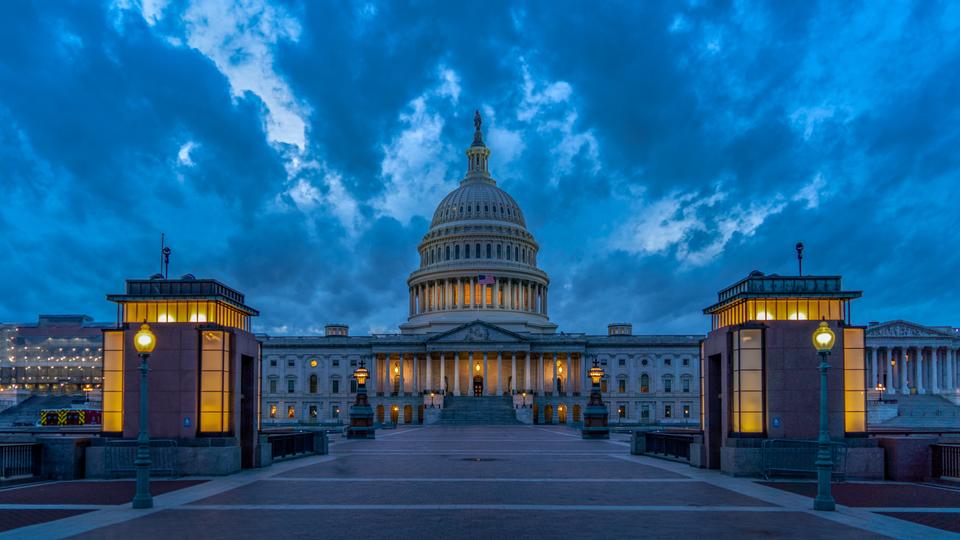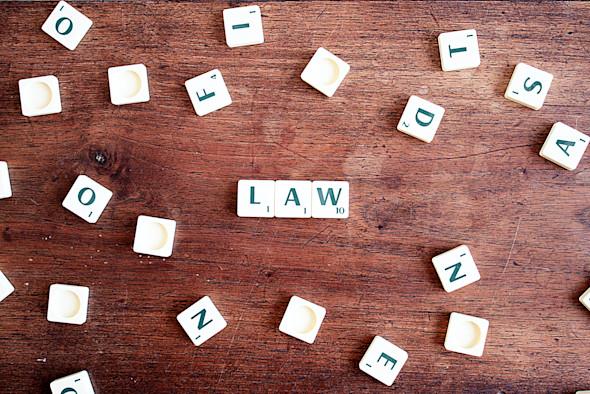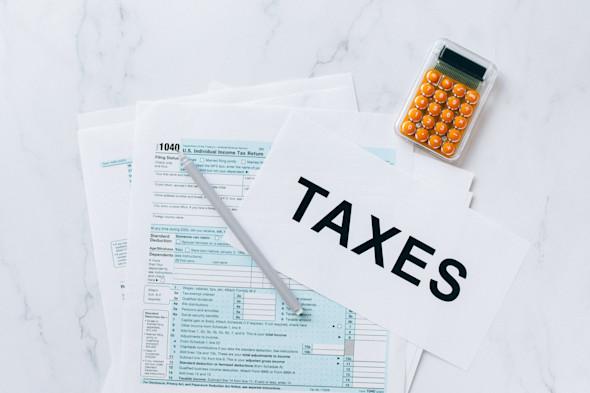Airbnb Rules in Washington | Airbnb Laws, Taxes, and Regulations

While running an Airbnb business might be a lucrative endeavour, it is important to make sure your property listing complies with the law and Airbnb rules & regulations. Here are several points you should take into account before setting up your listing for Airbnb.
Get to know Washington DC
Washington, D.C., formally the District of Columbia and also known as D.C. or just Washington, is the capital city of the United States. Maryland and Virginia share a land border on its remaining sides along the Potomac River, which forms its southwestern and southern borders. The city was named after George Washington, the first president of the United States and a Founding Father, and the federal district is named after Columbia, a female personification of the nation. Washington, D.C., is an important political capital of the world, as it is the home of the U.S. federal government and many international organizations. It is one of the most visited cities in the U.S., seeing over 20 million visitors annually.
Do you plan to invest in short-term rentals in Washington DC?
Washington DC offers a perfect blend of city life, historical significance, and rural beauty. It is a mecca for renters of all kinds in this up-and-coming market. There has been a marked increase in the popularity of vacation rental websites in Washington DC. Over the past decade, home-sharing platforms such as Airbnb have become increasingly popular with a significant impact of 73% of rentals listed on Airbnb channel. A steady 61% occupancy rate and nearly 4,900 active rental units, add up to an average daily rate of $153. Revenue averages $1,774 and is forecast to increase. Airbnb's overall rating in the city is 4.63, and with these statistics, we can anticipate this market is worth investing in.
Let's move on to the Laws, Regulations, and Taxes that govern the city so you can make informed decisions.
Airbnb Laws & Regulations in Washington DC

Due to the significant increase in short-term rentals and the increase of visitors to Washington DC through various OTA’s, the rules and regulations for operating have changed drastically. These new rules might cramp the style of those who were accustomed to renting freely. The penalties for not following these guidelines can be costly for those who rent short-term on Airbnb or any other platform, so it’s best to pay close attention and adhere accordingly.
New Short-Term Housing Regulations in DC
Short-term rental laws in effect since 1 October 2019
Property owners in Washington DC will only be allowed to rent out one home as a short-term rental, and this home must be the property owner’s primary residence.
To legally operate a short-term rental property, owners and hosts wanting to rent through Airbnb must register as a business with the city of Washington to do so. However, homeowners are banned from renting any properties other than their primary residence for more than 30 days at a time.
A vacation rental license is required if you plan to rent out an entire property (as opposed to renting out a single room).
The regulations limit a vacation rental property to only be rented out on a full-time basis for 90 nights per annum. Property owners are permitted to rent out an attic, basement, or bedroom on any home-sharing platform with no limits, the only stipulation being that they must live in the home at the time of the rental.
Hosts will still be required to collect the city’s 14.95% sales tax on accommodations from guests and will be required to pass it on to tax authorities.
All short-term rental hosts are required to register for tax collection with the DC Office of Tax and Revenue (OTR) and must file regular sales tax returns.
The new restrictions and requirements will result in fines ranging from $500 to $6,000. There is a $500 fine for the first violation. Upon the second violation, a $2,000 fine is imposed, and upon the third, a $6,000 fine and license suspension is imposed. Therefore, you should follow the rules and keep up to date with any new legislation.
Under the new law, property owners/hosts are required to obtain licenses from the District, install smoke detectors, and carry liability insurance for each unit available for rent.
Rental guests are banned from using annual visitor-parking permits. (This is due to residents complaining due to misuse of parking permits issued previously)
Rental Housing Business Categories
One-Family Rental
One-family rental, which includes the rental of single-family homes, townhouses, duplexes, individual condominium units, or individual rooms (including individual rooms in a residential building that the licensee also occupies);
Two-Family Rentals
Two-family rental, which includes the rental of an English basement apartment, converted basement apartment, or carriage house in a single-family home where the main residence is occupied by the property owner or another tenant; and
Apartment Houses
Apartment houses, which include the rental of buildings with three (3) or more dwelling units
An applicant for an Apartment must register with the DHCD after the Basic Business License has been accepted by the Department of Consumer and Regulatory Affairs (DCRA). Upon registration with DHCD, the applicant returns to DCRA with the DHCD-stamped RAD Form in order for the license to be issued.
One Family Rental and Two Family Rental applicants must register with DHCD after the license has been issued by DCRA.
Business Registration Process in Washington DC
1. Rental Accommodations Registration Form
If you are applying for a business license for a rental housing business, you must register the rental units with the Rental Accommodations Division (RAD) of the Department of Housing and Community Development.
The fee associated with RAD registration is $43.00 per unit, per two-year license period in addition to the license, application, and endorsement fees.
An applicant for an Apartment must register with the DHCD after the Basic Business License has been accepted by the Department of Consumer and Regulatory Affairs (DCRA).
Upon registration with DHCD, the applicant returns to DCRA with the DHCD-stamped RAD Form in order for the license to be issued.
One Family Rental and Two Family Rental applicants must register with DHCD after the license has been issued by DCRA.
2. Basic Business License (BBL)
Renting through Airbnb or another home-sharing service requires property owners to register as a business. All applicants for a Basic Business License (BBL) for a Residential Housing endorsement must register the number of rental units with the Department of Housing and Community Development's (DHCD) Rental Accommodations Division (RAD), as required by the Rental Housing Act of 1985.
The Rental Accommodations Registration Form along with the BBL application must be presented to and stamped by RAD before the issuance of a BBL.
To renew an existing Basic Business License:
Step 1: Review renewal instructions and bill.
Step 2: Gather requirements, including fees payable to "D.C. Treasurer."
Step 3: Submit renewal application via mail, in-person or online (if applicable).
Renewal Application Packets are mailed to the billing address on record no later than 30 days prior to the BBL's date of expiration. Please ensure your billing address is current and accurate in order to receive your renewal information in a timely manner. If you have not received a renewal application packet or to update your billing address, contact the Business Licensing Division.
3. Basic Business License Inspection Requirement
In order to obtain or renew a Basic Business License as a rental property provider, property managers must obtain and pass an inspection. There is no cost for the inspection. However, if a property fails the inspection or you request that the inspection be rescheduled with less than two business days advance notice, you will be responsible for paying a $90.00 re-inspection fee that must be paid prior to license renewal.
In order to schedule an inspection on your property, please submit a request using the online inspection request form and the DCRA Inspection and Compliance Administration will contact you directly within 10 business days to schedule an inspection.
To ensure you have the best contact information , please visit the DCRA Housing Registry to get up to date contact information.
A few things to note:
Any request to reschedule must be made at least two (2) business days prior to the scheduled inspection date.
When renewing a Basic Business License if you do not obtain a passed inspection prior to the time of renewal, your Basic Business License will not be renewed. Failure to obtain an inspection within 90 days will also see your license cancelled.
You may also receive a Notice of Infraction (NOI) for operating your business without fully complying with the licensure regulations.
Get a better understanding of the areas covered in the BBL Inspection Checklist.
Certificate of Occupancy/Home Occupation Permit Details
A Certificate of Occupancy is required for Apartments and Two Family Rentals.
Certificate of Occupancy
All applicants for a Basic Business License operating from a commercial location in the District of Columbia must provide a Certificate of Occupancy (C of O) for the premises address from which the business activity is conducted in order to demonstrate the activity does not conflict with building and zoning codes.
Home Occupation Permit
All applicants for a Basic Business License operating from a residential location in the District of Columbia must provide a Home Occupation (HOP) for the premise address from which the business activity is conducted in order to demonstrate the activity does not conflict with building and zoning codes.
For more information, please call the Office of the Zoning Administrator.
Airbnb Taxes in Washington DC

In Washington, DC, Airbnb has established agreements with the government, which is required by law to collect and remit local taxes on behalf of hosts. These taxes are calculated by Airbnb and collected from guests at the time of booking. Upon receipt of the collected taxes, Airbnb remits them on the hosts' behalf to the tax authorities. Taxes on accommodations can include occupancy taxes, value-added taxes (VAT), and goods and services taxes (GST).
Tax Rate applicable in Washington DC
The District of Columbia applies two taxes totalling 14.5% that apply to various transient accommodations.
More information is available in the DC Code, Sections 47-2002 and 47-2002.02.
Other Rules
It's also important to understand and abide by other contracts or rules that bind you, such as leases, condo board or co-op rules, HOA rules, or rules established by tenant organizations.
Conclusion
You'll be ready to start earning from your Airbnb listing once you have completed these important steps and have obtained the necessary approvals to start up your Airbnb listing. Make sure you are vigilant and stay up-to-date on the new requirements and regulations introduced by Airbnb or your local authorities at all times.
To learn more about Airbnb laws and regulations in different states, check out the Airbnb Laws, Taxes, and Regulations blogs on Florida, California, Utah, Colorado, and Ontario.